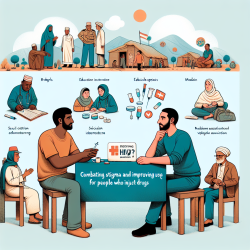Introduction
Concussions, often referred to as mild traumatic brain injuries, are a significant public health concern, affecting millions globally. The prevalence of concussions, particularly in workplace settings, necessitates effective strategies for recovery and return-to-work. The research article "Stakeholder Recommendations to Increase the Accessibility of Online Health Information for Adults Experiencing Concussion Symptoms" provides valuable insights into enhancing digital health information accessibility for adults experiencing concussion symptoms.
Key Findings from the Research
The study involved 47 participants, including workers recovering from concussions and healthcare professionals. The research identified 20 recommendations to improve the accessibility of digital health information for adults with concussion symptoms. These recommendations address physical, cognitive, and emotional symptoms associated with concussions.
Recommendations for Practitioners
Practitioners can enhance their skills by implementing the following recommendations derived from the study:
- Provide Audio Options: Offering auditory versions of health information can assist individuals with visual sensitivity or headaches.
- Ensure Easy Navigation: Simplifying website navigation can reduce cognitive load for users with memory or concentration issues.
- Reduce Visual Stimulation: Use subdued colors and minimize fast-moving elements to prevent exacerbating symptoms.
- Use Simple Language: Simplifying the language used in health information can aid comprehension for individuals with cognitive symptoms.
- Feature Personal Stories: Sharing stories of concussion recovery can help normalize and destigmatize the emotional symptoms experienced by individuals.
- Telehealth Options: Providing telehealth services can connect individuals with mental health experts, particularly in rural areas.
Encouraging Further Research
While the study provides valuable insights, further research is needed to explore the long-term impact of these adaptations on concussion recovery. Practitioners are encouraged to engage in ongoing research to refine and expand these recommendations, ensuring they meet the diverse needs of individuals recovering from concussions.
Conclusion
Enhancing the accessibility of online health information is crucial for supporting concussion recovery and return-to-work. By implementing the recommendations from this research, practitioners can improve outcomes for individuals experiencing concussion symptoms. For those interested in exploring the original research, please follow this link: Stakeholder Recommendations to Increase the Accessibility of Online Health Information for Adults Experiencing Concussion Symptoms.










